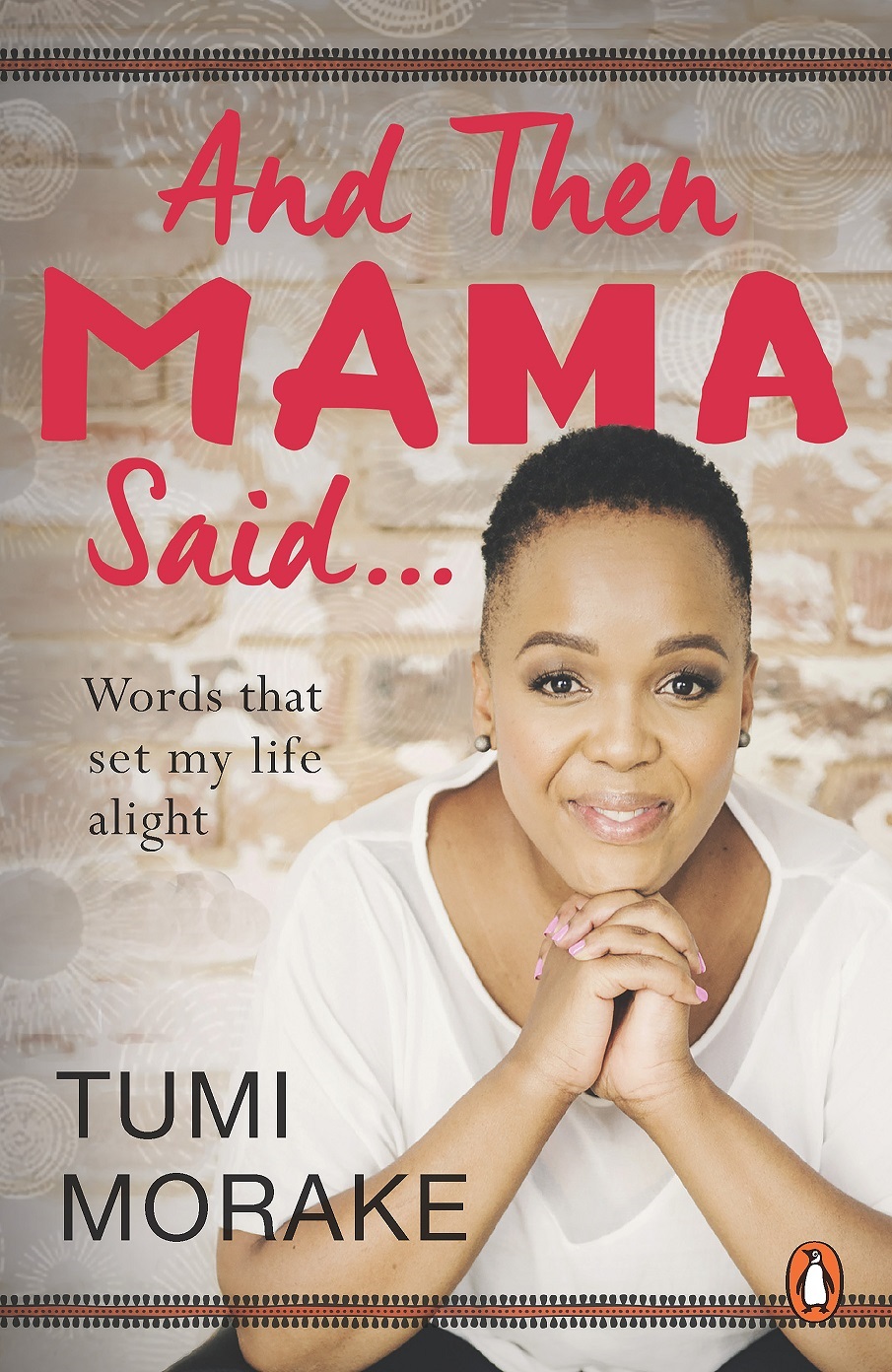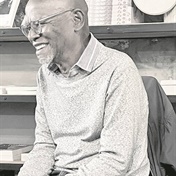
When award-winning comedian and television presenter Tumi Morake bagged the highly sought after role to present the popular wedding show, Our Perfect Wedding, she didn’t expect to encounter vicious body shaming. In this extract from her recently released memoir, And Then Mama Said, she opens up about her experience.
And Then Mama Said
By Tumi Morake
Penguin Random House
R209 at takealot.com
Chapter Eight
When I was called to audition for Our Perfect Wedding, I thought that the production company was genuinely keen for me to present the show, as opposed to the usual practice of putting some auditions on camera to prove that they’d considered all their options before hiring their precast choice. I had been to enough of those.
I asked who else they were seeing, and they were quite forthcoming.
I knew then that I would get the gig; the people they mentioned were It girls who did not have the kind of interpersonal skills a show like this needed. Don’t judge my comment; I had been to enough events as the one nobody notices and I observed these women. Relating to people was not their thing.
I had always wanted to try my hand at TV presenting, because presenters, essentially, are glorified narrators. Narrators have always been my favourite characters to watch on stage. They take you on a journey, and dictate its course. While the characters in the story bring it to life, the narrator adds the spice and guides the story. It is such a powerful position, the omnipresent figure who remains with you from start to finish.
Everything about this show felt right. It was run by women, in a production company owned by a woman many of us had idolised since we were little girls – Basetsana Kumalo. I was already financially comfortable thanks to all the corporate work I was doing, but this would be a creative outlet that might later translate into bums on seats when I performed my one-man shows. I had already become a fan of My Perfect Wedding when my predecessor, Phumeza Mdabe, presented it. I found her adorable; I could watch her forever. She would say out loud the things she looked like she was thinking while she kept it polite and at arm’s-length with her subjects.
While this was happening, Mpho and I were going full-steam ahead with the production of Kota Life Crisis. I was producing on weekdays and shooting the wedding show on weekends. It looked like I was winning at life. What I went through on OPW, however, would prove to be worse than any treatment I had ever received at the hands of my male counterparts in the industry.
My last-born had just turned a year old and I was quite heavy. I was comfortable in my own skin, but I wanted to lose weight because I was now quite unhealthy. The weight loss was about health, not looks.
Sexy, in fact. And as a comedian, writer and MC, I had never been told that my weight was an issue. It only ever cropped up on social media or at family gatherings, but never quite as humiliatingly as it did when I presented this show.
I already knew that Black Twitter mercilessly ripped off that show.
I thought that would be my only battlefield; I did not know I had a whole battle ahead of me in the production house itself. Preposterous comments flew back and forth between the execs and production about my body and the intense work that needed to go into hiding my big belly. This despite the fact that the show had been on air for a few weeks and I could already tell that the audience was warming to me. Audiences are creatures of habit. They are resistant to change, but if you deliver, they come round.
This was the case with me; I was getting increasingly comfortable and making the show my own.
However, the feedback I got from the people who had hired me made me wonder if I was missing something. They were not exactly blown away by my work; my body was distracting them. It was like they just suddenly realised how overweight I was. But I did not get fat on the show; I had arrived fat. Did they not know what I looked like before they hired me?
I chose to focus on fine-tuning my presenting skills. Most of the audience was already enjoying my cheeky sense of humour and my relatability. Of course there were those who disliked change, and a few just generally disliked me, which happens. That’s just how life is. But I was not noticing enough fat-shaming online to make me think that my body was a crisis for the production company.
Eventually, my stylist was changed. I was not surprised. I think the poor soul was overwhelmed, and the clothes she put me in had mostly been disappointing. They smacked of a poor budget and were quite … ordinary, certainly not up to the standard I had come to appreciate watching the previous season of the show. I therefore assumed that the stylist’s choice of clothing was the problem, until I was told that the designers from the previous season were hesitant to dress me because I was overweight. Fair enough. Their business.
If I wasn’t good enough then, consider me still not good enough now.
One of the women from the production company (I was floored when she turned out to be as hefty as I was) had to be there in person to oversee this wardrobe process. Small budget, big-budget demands.
A new stylist, Mimi (Millicent Nkangane), the magician behind Mimi Spunk, was brought to our downtown studios for a fitting. Mimi had dressed all shapes and sizes and came highly recommended by the producer.
She was the silver lining in this whole process and wasn’t there to fix ugliness, but to figure out what looked great on me and what I liked.
As for me, I wanted clothes that would help me do my job better and look good on screen. I loved Mimi’s clothes and the way she saw me, as well as her ideas for where we could go with my new look. The producer, executive producer and commissioning editor arrived to observe the fitting, so I made one of the dressing rooms available so that we could all be accommodated comfortably.
In this room I was spoken to, and about, as if I wasn’t present. I got a real taste of body-shaming, but I took it on the chin. I heard things like ‘But we need to cover that stomach’, and ‘Her stomach is a problem.’ I knew I was quite heavy after having my baby, but this felt unnecessary.
The make-up lady had brought wigs for me to try on, and I remember the executive producer saying ‘no’ in the most affronted tone. I felt like an ugly duckling that needed a major makeover. I laughed when they said, ‘No, we can’t have Twitter attack her for that.’ I could take the Twitter insults, but the things they were saying in the room cut me more. Even my natural hair came under fire.
There weren’t that many people insulting my looks on Twitter to warrant being subjected to this level of humiliation. I took it, though – anything to make the show look good.
Personally, I thought they had cut corners in the beginning by employing the cheapest stylist they could get, and they got what cheap will get you. All they had to do was appoint a stylist who knew what she was doing and we would all win. I was not the problem. I had been in magazines, on stage and on TV before. I knew I was not the problem. I just wish I had repeated that to myself in the moment. Thick-skin loading.
One of the cast members was next door, overhearing the entire exchange.
When everyone had left, she came in and hugged me. She was shocked at how I had been spoken to and could not believe how gracious I had been. I felt like a toddler who’d fallen down. As a parent, if you say nothing and just look away, the toddler tends to just get up, decide it wasn’t so bad and gets on with life. But if you react and rush to fix the booboo, they realise it hurts, and they start wailing. My cast member had pointed at my booboo, and it hurt. I swallowed the tears. Although I did not deserve to be treated that way, I wanted them to be done with it so I could go back to producing my eight-times-nominated sitcom. I made it my goal to be the best damn host that show had ever had, so that by the time I left, the women who’d insulted me would remember my talent and not the fat that they decided mattered above all else.
I left the show after two seasons, and there was an overwhelming demand for my return. I felt like I had won. My worth had been taken into account and nothing they threw at me could break me.




 Publications
Publications
 Partners
Partners









